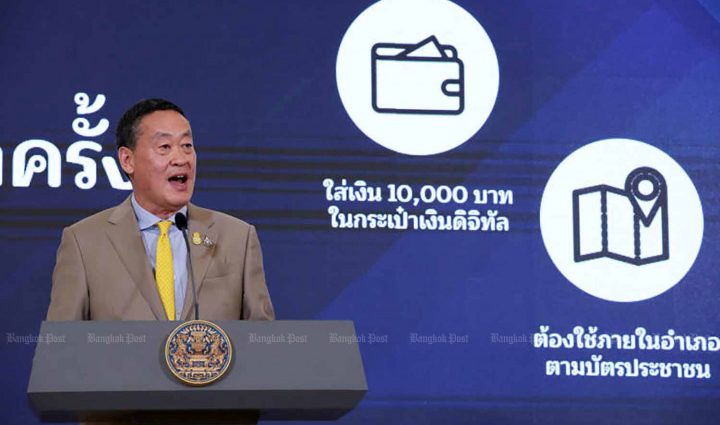PUBLISHED : 10 Dec 2023 at 18:38

The National Anti-Corruption Commission (NACC) is planning to hold a public hearing to gauge opinions about the government’s handling of its 10,000-baht digital money handout scheme as part of the NACC’s monitoring of this controversial project.
Opinions of general members of the public and experts in relevant fields recorded during the hearing will be compiled for analysis, said Niwatchai Kasemmongkol, secretary-general of the NACC.
“Since the government recently said it would submit a loan bill to the House [to fund the scheme], the NACC is prepared to [scrutinise] what the government would do next with the loan,” he said.
Since the formation of a panel aimed at studying and monitoring the government’s implementation of the digital wallet scheme, the NACC has obtained and studied documents pertaining to the available details of the scheme and interviewed many state officials responsible for implementing the project, he said. They included personnel from the Ministry of Finance, the Revenue Department, the Comptroller General’s Department, the Public Debt Management Office and other experts.
So far, it remains unclear whether the government could actually implement the scheme as there are questions over who will provide the 500-million-baht funding and how the money will be distributed to the population, he said.
Prime Minister Srettha Thavisin admitted the government could not at this point be certain how long it would take the Council of State, the government’s legal arm, to respond to questions submitted to the council asking about a plan to borrow 500 billion baht to fund the digital handout scheme. But Mr Srettha said he was still confident the implementation of the scheme could begin in May as planned.
Deputy Prime Minister and Commerce Minister Phumtham Wechayachai earlier said a draft of the 500-billion-baht loan bill had already been submitted by Deputy Finance Minister Julapun Amornvivat to the council for inspection as well.
If the council doesn’t object to any part of the bill and sends the draft back to the government, it will then proceed with submitting the bill to the House for deliberation and passing into law, he said.
However, if the council advises the government to amend the draft on any minor points, the government do as it was told, he said.
In the event the council advises against a core part in the bill, the government will later have to discuss what should be done afterwards, he said.

